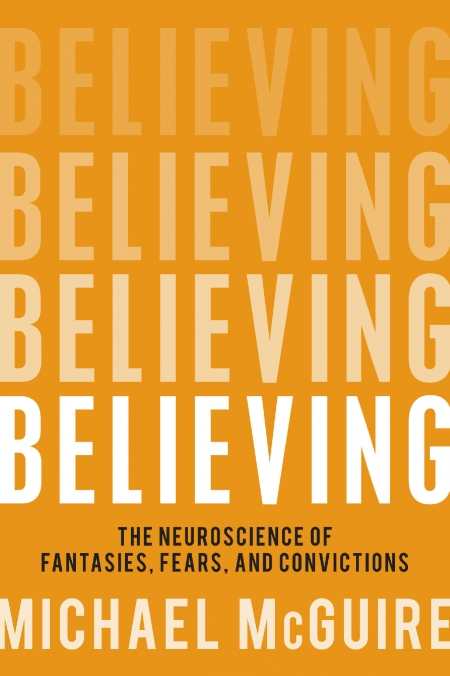Believing
The Neuroscience of Fantasies, Fears, and Convictions
Why do humans hold beliefs that defy the facts? It’s all brain biology.
It all began with a woman who believed she was not her parents’ biological child. All evidence pointed to her being their child, and her belief did not alter her feelings toward them or interactions with them. In all other areas of life she was rational and healthy, yet even in the face of overwhelming evidence to the contrary, she could not shake this belief. Twenty years of training and experience as a psychiatrist provided no solutions for how to help her resolve this issue, so Michael McGuire set out to learn more about the biological processes of the brain to see if they offered insights that psychological and historical analyses of belief systems did not.
McGuire is professor emeritus of psychiatry and behavioral sciences at the University of California at Los Angeles and coauthor of God’s Brain (with Lionel Tiger) and Darwinian Psychiatry (with A. Troisi). He spent seventeen years studying vervet monkeys on St. Kitts to see if he could link biological processes to the way we create and maintain beliefs. It has long been observed that the human mind tends to be attracted to, and to more easily remember, evidence that supports an already held belief and to dismiss contrary evidence. McGuire connects this tendency to the dopamine reward system of the brain. When people feel they are right, dopamine is increased in the brain, causing them to feel pleasure. This response is obviously favorable to feeling discomfort, so future interactions will naturally migrate toward the pleasure-producing evidence and reject, if possible, discordant ones.
Much of this book is devoted to discussion of the historical, psychological, and philosophical views on why we have beliefs. It is more a chronicle of McGuire’s journey toward his ideas on how biology affects beliefs than a discussion of the biological processes themselves. This is not a book for those who desire firm answers to the questions raised, for those answers are not yet available. The author acknowledges throughout that there are alternative theories regarding the foundations of his ideas. For example, the theory of evolution is used as a framework for understanding the systems and processes discussed, but he acknowledges that not everyone is comfortable with the certainty of evolutionary theory. This book will appeal most to those who like to use one person’s ideas as a jumping off point for further thought and research on the subject.
“Our brains aren’t going to change in the foreseeable future,” writes McGuire. “Our strong tendency to believe isn’t going to disappear.” However, the way we look at belief creation and its impact on our lives is open to further research, especially in the area of neurobiology.
Reviewed by
Christine Canfield
Disclosure: This article is not an endorsement, but a review. The publisher of this book provided free copies of the book to have their book reviewed by a professional reviewer. No fee was paid by the publisher for this review. Foreword Reviews only recommends books that we love. Foreword Magazine, Inc. is disclosing this in accordance with the Federal Trade Commission’s 16 CFR, Part 255.

